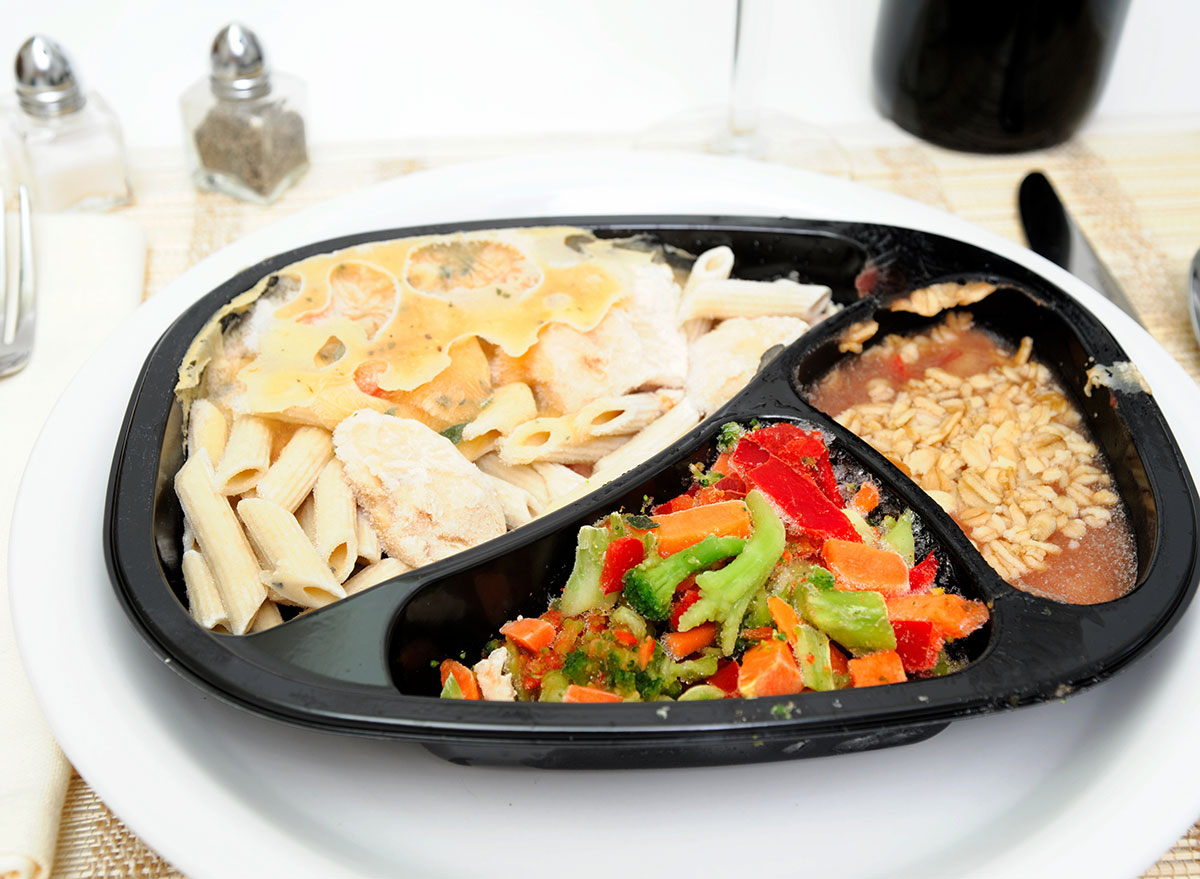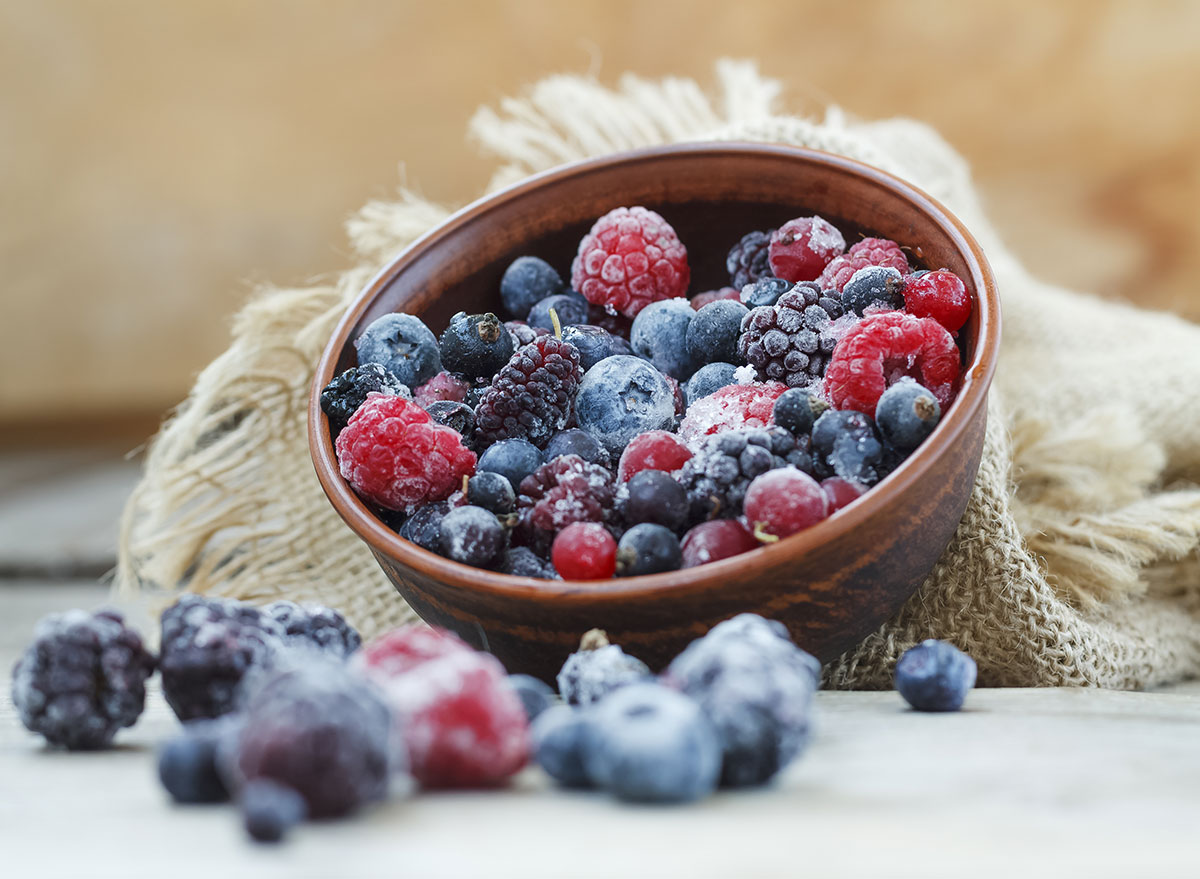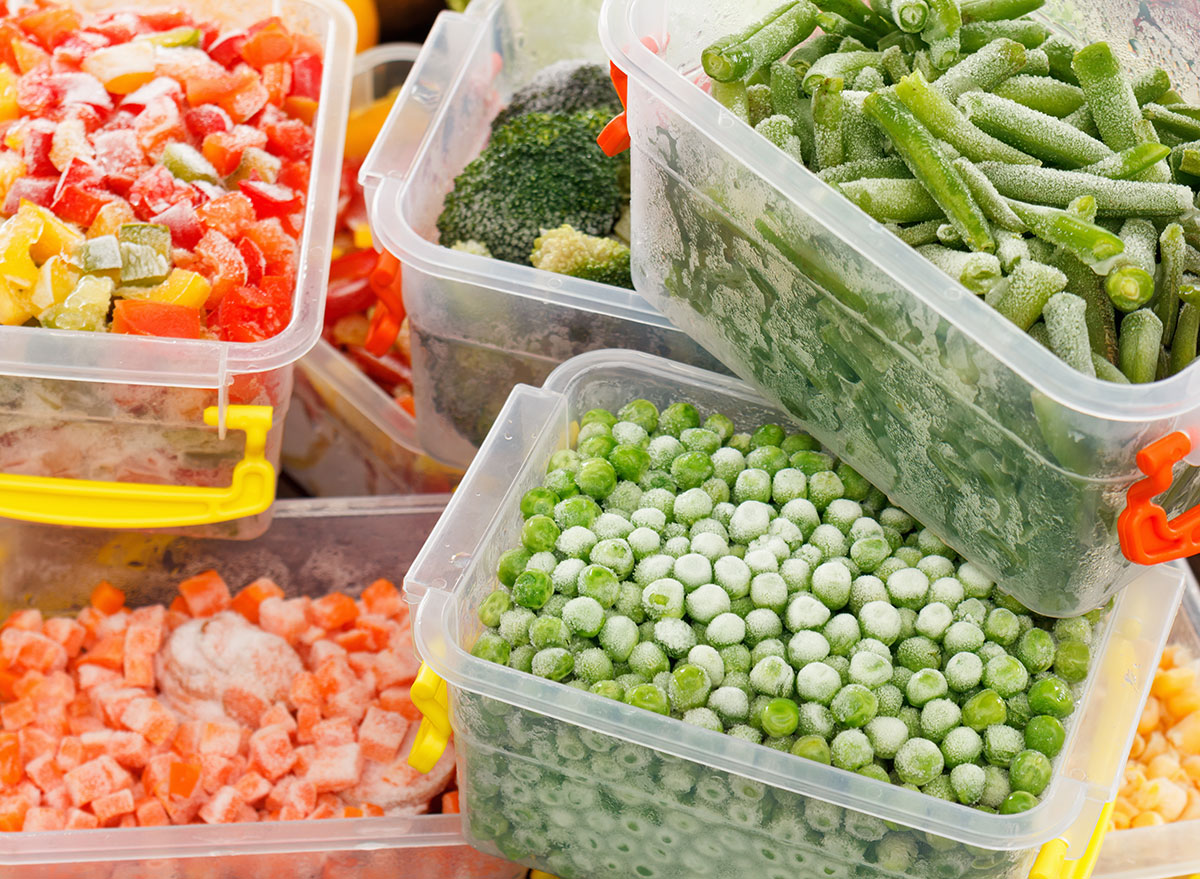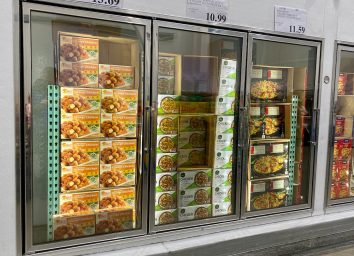Side Effects of Eating Frozen Foods, According to Science

Frozen foods have gotten a pretty bad rap over the years thanks to the rise of T.V. dinners and microwaveable mac and cheese. Traditionally, freezer meals are loaded with sodium, preservatives, synthetic flavors, and other sketchy ingredients to help prolong shelf life as well as enhance flavor that’s seriously lacking. So to say that most frozen meals are unhealthy is pretty accurate. (See: 28 Unhealthiest Freezer Aisle Foods.)
But stepping into the freezer section isn’t all that bad. Along with all the bad of prepared frozen meals, there are also some surprising benefits of eating frozen foods.
Read on to learn about the side effects of shopping the freezer aisle, and for more on how to eat healthily, don’t miss The Worst Frozen Foods That Should Never Be In Your Shopping Cart.
You may increase your blood pressure.

The CDC says that more than 70% of the sodium Americans consume comes from processed foods, which include frozen meals. An American Journal of Clinical Nutrition study found that the average frozen meal contains 935 milligrams of sodium, which is the equivalent of 40% of your daily recommended intake. A high sodium intake—which the CDC notes is the case with 90% of Americans—has been linked to high blood pressure.
You’ll eat more fruits and vegetables.

The most commonly-reported reasons why people don’t eat fruits and veggies are that fruits and vegetables go bad quickly, aren’t available in their homes, are expensive, and take too long to prep, as noted in a Clinical Medicine & Research study.
All of these problems can be solved by purchasing frozen produce. Frozen foods have long shelf lives, can conveniently be stored in your freezer, are affordable, and often are sold pre-chopped! That means eating frozen fruits and vegetables can help you reach your daily recommended intake of fruits and vegetables—something that 9 in 10 Americans isn’t getting, according to the CDC.
Get to using that frozen produce with these 20 Quick & Easy Smoothie Recipes.
You may be taxing your heart.

Frozen pizza is one of the more popular frozen foods Americans buy. If this food is a staple in your freezer, you should be aware that you may be putting your heart at risk. One of the major side effects of eating frozen pizza is increasing your risk of heart disease. Frozen pies are high in heart-taxing saturated fat from cheese as well as blood-pressure raising sodium from preservatives in the dough alongside cured meats like pepperoni and sausage.
You may consume more micronutrients than you otherwise would.

Fresh isn’t always best. Produce is picked fresh on a farm, but then it has to go through the process of getting packaged, shipped, put on display at a supermarket—where it can sit for days before you purchase it—and then finally brought home, where, again, it can sit in a fruit basket on your counter for a few more days before being eaten. Because of this, fresh produce loses vitamins over time during storage. Frozen fruits and vegetables are typically flash frozen on the farm, which can help maintain a high concentration of nutrients.
In fact, a Journal of Food Composition and Analysis study showed that the nutritional value of many frozen fruits and vegetables are generally equal to that of their fresh counterparts. Even more promising for frozen food lovers is that the researchers found that frozen produce contained significantly greater vitamin content than “fresh-stored” produce more frequently than “fresh-stored” outperformed frozen.
You may expose yourself to carcinogens.

Manufacturers often use preservatives in frozen meals to prolong shelf life. One of the more popular additives used in frozen food is butylated hydroxyanisole, or BHA. Unfortunately for you, BHA may increase the risk of cancer and is classified as a potential endocrine disruptor by the European Union. Check out the label of your frozen meal before purchasing it. Luckily for you, there are 25 Healthy Frozen Meals that are free of this preservative.








